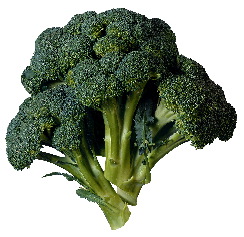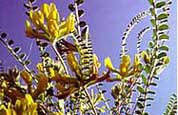Naturopathic health
Cancer Alternative Treatments
Cancer Herbal Remedies & Complementary Therapies
Throughout history, herbal remedies and other complementary medicines have been used to treat cancer. There are many types of cancer, and many different causes. This page will be developed over time to try and address as many as of the relevant issues as possible. This is a huge subject so please bear with us as we add more information Modern medicine can be successful in the treatment of cancer, however the treatments can also be very aggressive, with many side effects. Complementary treatments can also be useful in helping to deal with those side effects. Lets start with some general dietary and lifestyle advice; there are a lot of foods you should avoid and if you visit the lifestyle section of this website you will find some general advice that can be useful in helping to prevent the onset or spread of cancer. In particular read the green vegetables page, this demonstrates how vegetables such as broccoli can help in both preventing and curing cancer and also gives some information about the Gerson Institute approach which concentrates on using diet in the fight against cancer. Also read the information on watercress which may help smokers in the fight against cancer Another natural way to treat cancer through diet is with Turmeric. The active ingredient Curcumin has been shown to prevent a large of number of cancers in animal studies. Laboratory data indicate that curcumin can inhibit tumour initiation, promotion, invasion, angiogenesis and metastasis. Further information can be found at the MD Anderson Cancer Centre There is quite a lot of research on the benefits of Black seed oil for cancer. This blog details some of that research Research published in 2009 by Min Zhang of the University of Western Australia indicates eating fresh mushrooms daily can reduce breast cancer risk by 30% Other Lifestyle factors can also be important. A study in America is currently being sponsored by the National Cancer Institute. It aims to find out if a yoga-based cancer rehabilitation program can help reduce the physical and emotional side effects of living with cancer and its treatment. Herbal treatments for cancerIn China, astragalus is widely used in the treatment of cancer, both as a primary treatment and as an adjunct to conventional therapies. Astragalus has been used in conjunction with ligustrum to treat breast cancer, cervical cancer and lung cancer. Essiac, Essiac is an herbal mixture that has been widely used in Canada for more than 70 years. The 4 main herbs in Essiac are burdock root (Arctium lappa), Indian rhubarb (Rheum almatum), sheep sorrel (Rumex acetosella) and the inner bark of slippery elm (Ulmus fulva or U. rubra). Proponents of Essiac claim that it strengthens the immune system, improves appetite, relieves pain and improves overall quality of life. They also claim that it may reduce tumour size and prolong the lives of people with many types of cancer. Research into essiac is not currently conclusive although some animal studies have been positive and further research is under way. More information can be obtained from CMAJ (The Canadian Medical Association journal). Aloe vera has also been recommended for preventing radiation-induced skin reactions, however a systematic literature review found no evidence to support this although the research was thin and its key recommendation was that more research was required. Cancer Research UK do state that many cancer sufferers find it useful. Mistletoe is also widely used by herbal practitioners for the treatment of cancer. A number of studies have been conducted into its efficacy but again they are inconclusive by modern medical standards and recommendations for further research is recommended. a full review can be found at the Cochrane Library Some immune boosting herbal treatments such as echinacea are also useful to cancer patients who often find their immune systems are under attack from aggressive conventional treatments. Other naturopathic treatments and cancerBecause naturopathic treatments look at the whole person and treat holistically, often individual aspects of the treatment do not stand up to conventional clinical trial using double blind sampling techniques. Acupuncturists and Homeopaths often help treat the symptoms of cancer. Acupuncture has been demonstrated to have a positive effect on peripheral neuropathy symptoms. Homeopathy has not been clinically proven to help treat cancer but there are numerous anecdotal references where individuals have reported distinctive benefits. Naturopath's treat the whole person not just the disease or condition. That's why you cannot use this site for diagnosis or treatment. The information we provide should not be treated as a substitute for medical advice or treatment. We recommend that you visit a qualified naturopath or find a GP who is sympathetic to a naturopathic approach. Click here for our full disclaimer. |
Ailments
|
|
|
|
|
If you're starting to move towards a healthy diet and you want to take a major step forward then a detoxification programme can make a big difference. Click on the link below to find out more. Healthy Recipes Juicing SupplementsBach Flower Herbal Acupuncture Homeopathy DetoxificationMassage Qi Gong Nutrition & Diet Iridology Tissue Salts |
|
|

[Herbal Remedies][Ailments][Naturopathy][Contact][Community][Lifestyle][Home][Research]
Sponsored by Organic Herbal Remedies - Organic Herbal Tinctures








